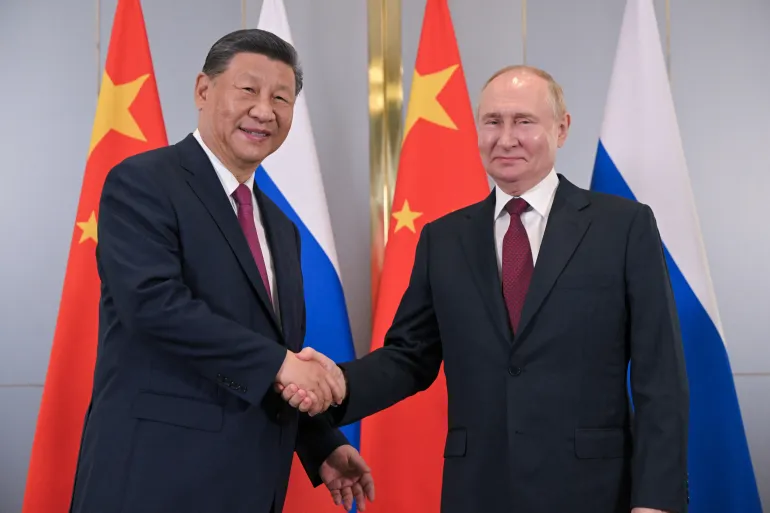China and Russia Highlight ‘Tectonic Shifts in Global Politics’ at SCO Summit
In a significant display of geopolitical alignment, the presidents of China and Russia have called on their allies to resist external influence, asserting that global centers of power are undergoing transformative changes and a multipolar world is emerging. Russian President Vladimir Putin and Chinese President Xi Jinping delivered these remarks during a summit of the Shanghai Cooperation Organisation (SCO) held in Astana, the capital of Kazakhstan, on Thursday. This regional bloc, which includes several Eurasian countries, is increasingly viewed by Moscow and Beijing as a counterbalance to U.S. dominance on the global stage.
Emphasis on a Multipolar World
Both leaders emphasized the necessity of adapting to what they described as “tectonic shifts” in global politics. President Xi Jinping stated that the world is moving away from unipolarity and towards a multipolar order where multiple countries share influence and power. This shift, according to Xi, should encourage nations to collaborate more closely and to resist the pressures and influences imposed by external powers, particularly the United States.
The Role of the Shanghai Cooperation Organisation
The Shanghai Cooperation Organisation (SCO) plays a pivotal role in this vision of a multipolar world. Established in 2001, the SCO includes China, Russia, India, Pakistan, and several Central Asian nations. It aims to promote political, economic, and security cooperation among its members. For Russia and China, the SCO is a strategic platform to advance their interests and to present a united front against what they perceive as Western hegemony.
During the summit, both Putin and Xi underscored the importance of the SCO in fostering a new international order based on mutual respect, equality, and non-interference in the internal affairs of sovereign states. They argued that the SCO’s principles and activities are vital in countering the unilateral policies and practices of certain Western countries.
Criticism of U.S. Policies
The statements made by Putin and Xi in Astana were also a direct critique of U.S. foreign policies. They accused the United States of attempting to maintain its global dominance through various means, including economic sanctions, military interventions, and alliances that exclude other significant powers. This approach, they argued, leads to instability and conflicts around the world.
President Putin specifically pointed to the sanctions imposed on Russia by the U.S. and its allies as examples of unjust and coercive measures. He called for greater economic cooperation within the SCO framework to mitigate the impact of these sanctions and to build a more resilient and self-sufficient regional economy.
Strengthening Alliances and Economic Ties
In response to these challenges, both leaders advocated for strengthening alliances and economic ties within the SCO. They proposed initiatives aimed at enhancing trade, investment, and infrastructure development among member states. By doing so, they believe the SCO can become a powerful economic bloc capable of challenging the dominance of Western economies.
Xi Jinping highlighted the Belt and Road Initiative (BRI) as a key component of this strategy, emphasizing its potential to improve connectivity and economic integration across Eurasia. He urged SCO members to actively participate in the BRI and to support projects that promote sustainable development and mutual prosperity.
Conclusion
The summit in Astana underscored the deepening partnership between China and Russia and their shared vision of a multipolar world. As the global geopolitical landscape continues to evolve, the cooperation between these two major powers within the framework of the SCO is likely to have significant implications for international relations. Their call to resist external influence and to support a more balanced distribution of global power reflects a growing desire among many countries for a more equitable and stable international order. The coming years will reveal how effectively the SCO can implement this vision and what impact it will have on global politics.

